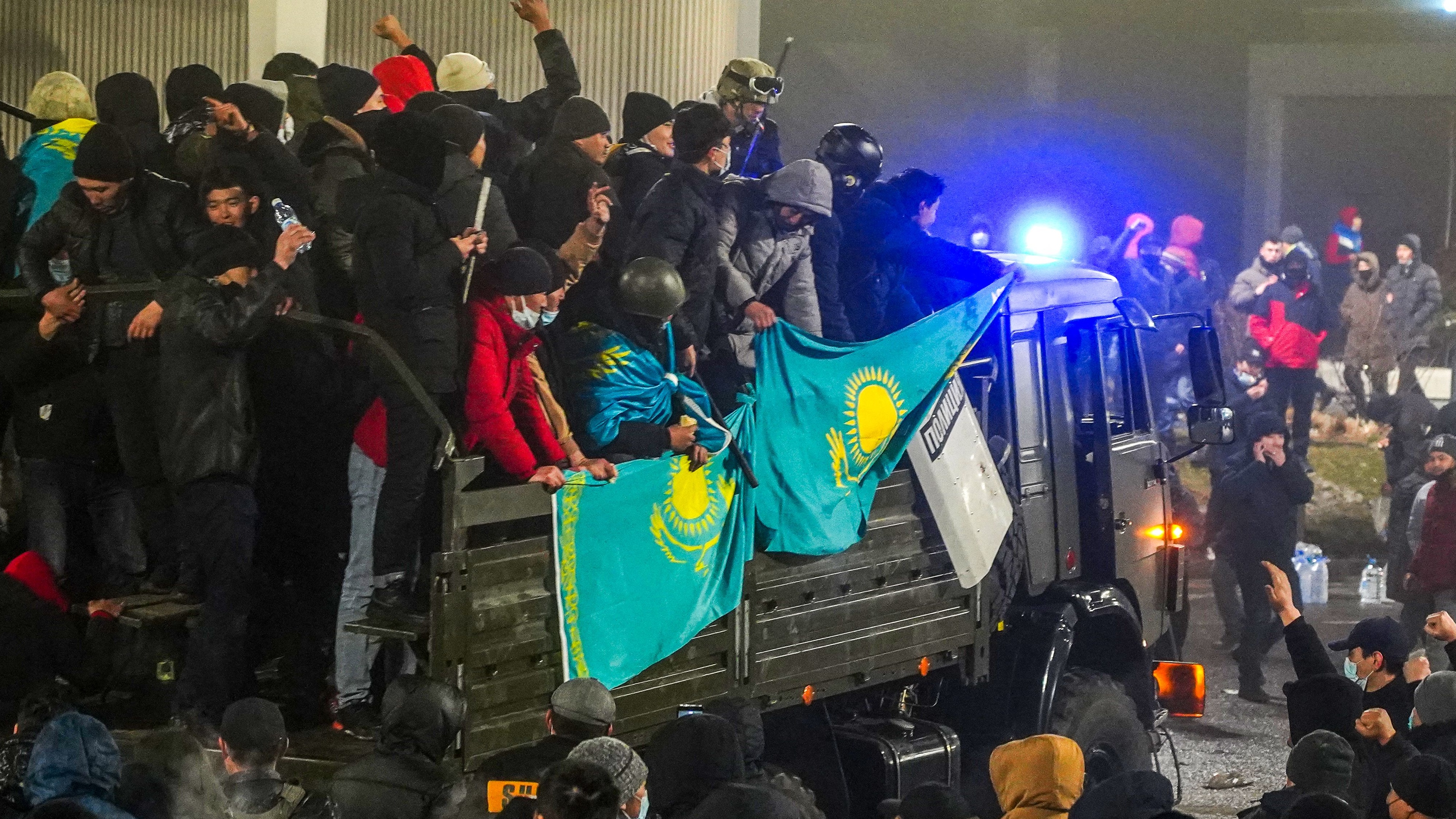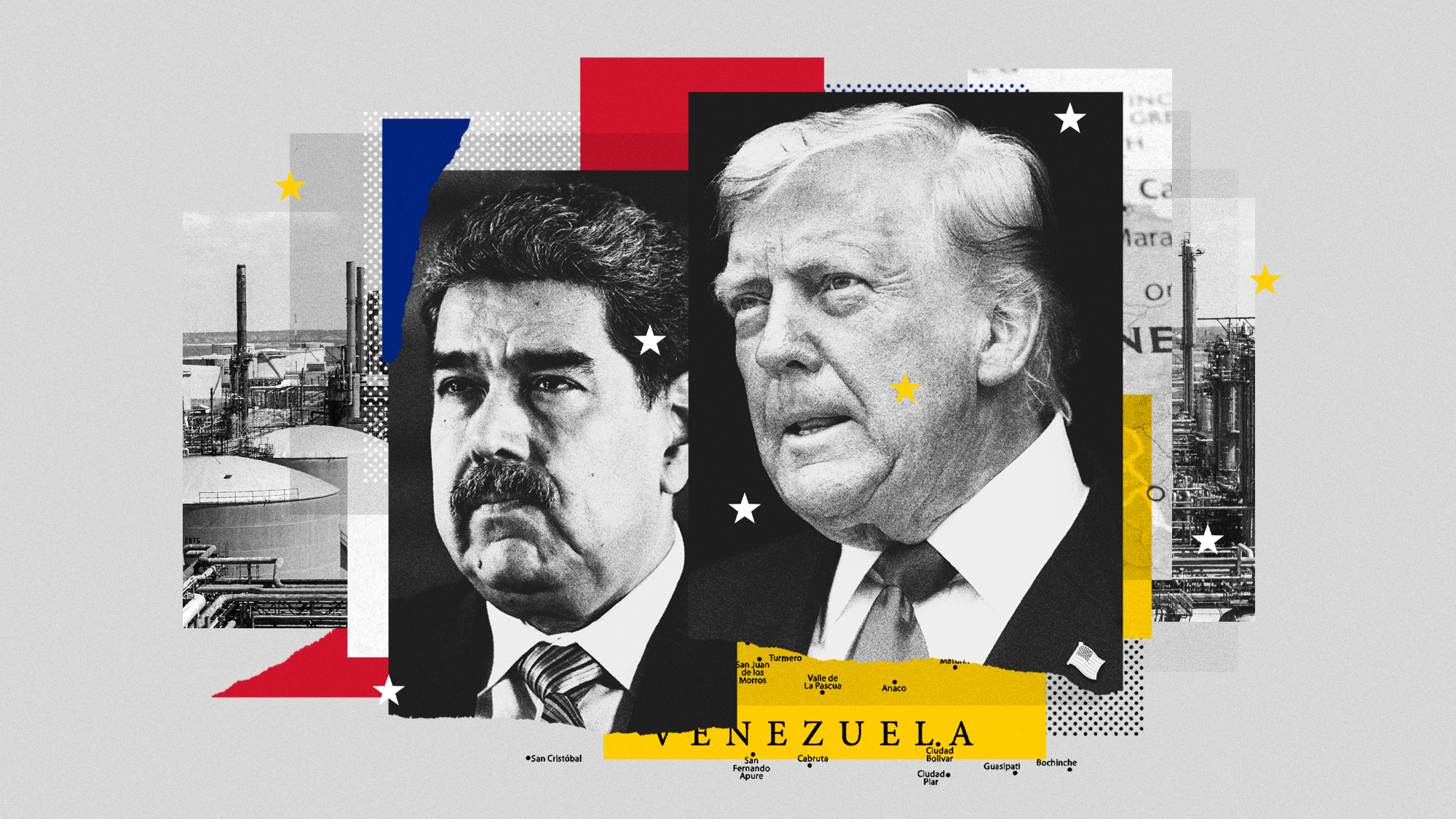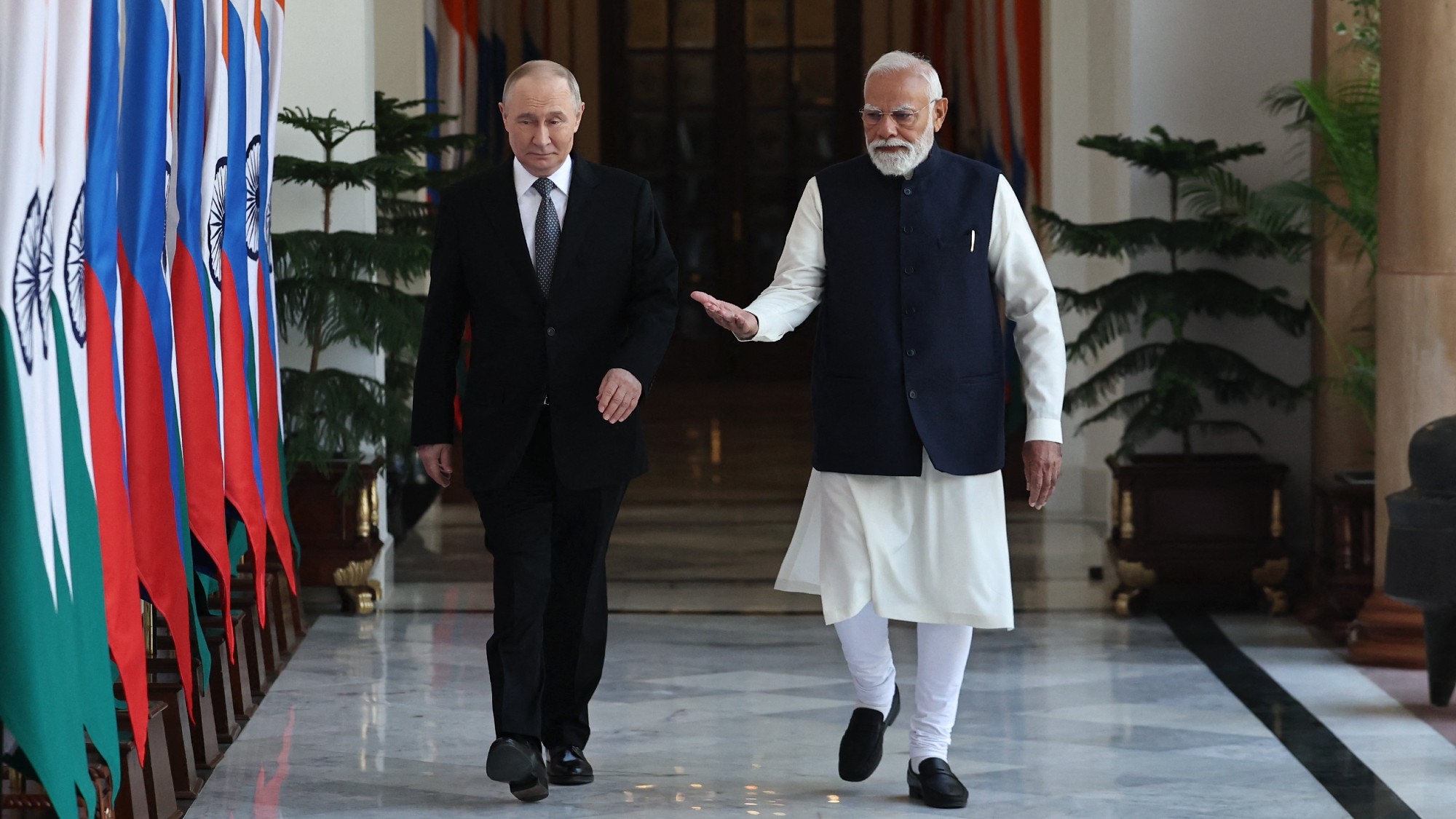Why Kazakhstan protests sparked ‘colour revolution’ fears
Russian-led military bloc to start withdrawing troops as detentions near 10,000

A free daily email with the biggest news stories of the day – and the best features from TheWeek.com
You are now subscribed
Your newsletter sign-up was successful
Kazakhstan’s president has announced that a Russian-led military alliance called in to quell violent protests will begin leaving the country within days.
President Kassym-Jomart Tokayev “requested help” from the Kremlin last week after claiming that demonstrations triggered by rising fuel prices were an attempted “coup d’etat”, the Financial Times reported. But “amid signs that the worst unrest in Kazakhstan’s modern history was beginning to calm”, he told the country’s parliament yesterday that the Russian troops would withdraw within ten days.
The announcement came a day after Russian leader Vladimir Putin vowed to banish the threat of a “colour revolution” in the former Soviet Union nation.
The Week
Escape your echo chamber. Get the facts behind the news, plus analysis from multiple perspectives.

Sign up for The Week's Free Newsletters
From our morning news briefing to a weekly Good News Newsletter, get the best of The Week delivered directly to your inbox.
From our morning news briefing to a weekly Good News Newsletter, get the best of The Week delivered directly to your inbox.
What is a colour revolution?
Addressing a meeting on Monday of the Collective Security Treaty Organization (CSTO) – an alliance between Russia, Armenia, Belarus, Kazakhstan, Kyrgyzstan and Tajikistan – Putin said that he would “not allow the realisation of so-called colour revolution scenarios”.
According to the state-run RIA Novosti news agency, the Russian president blamed the unrest in Kazakhstan on “outside forces” seeking to interfere “in the internal affairs of our states”.
“They used well-organised and well-controlled militant groups… including those who had obviously been trained in terrorist camps abroad,” he claimed.
Russian officials and pro-Kremlin media have also accused the West of “trying to foment a ‘colour revolution’ in Kazakhstan – a similar reprise voiced during popular uprisings” in a string of former Soviet states in recent years, said The Moscow Times.
A free daily email with the biggest news stories of the day – and the best features from TheWeek.com
Although the term has also been applied to protest movements further afield, it commonly refers to the Velvet Revolution in Czechoslovakia in 1989, Bulldozer Revolution in Yugoslavia (2000), Rose Revolution in Georgia (2003), Orange Revolution in Ukraine (2004) and Tulip Revolution in Kyrgyzstan (2005).
These uprisings followed disputed elections or a refusal to introduce fair elections, with massive street demonstrations by protesters demanding the transition of countries from Soviet-style authoritarianism to Western democracy.
Perhaps the most famous of the colour revolutions is the Velvet Revolution, which began nine days after the fall of the Berlin Wall. The uprising triggered the “non-violent toppling of the Czechoslovak government”, said History.com, and paved the way for the election of Vaclav Havel, a writer and the nation’s most famous dissident, as president in December 1989.
Repeats or rhymes?
Voice of America suggested that the “speed with which Russia dispatched troops” to help quell the recent demonstrations in Kazakhstan is a “testimony to the Kremlin’s recurring fear of colour revolutions”.
Russian officials have suggested that the alleged bid to spark another such uprising is part a plan to “disorientate Russia ahead of its major security talks next week with the United States and Nato amid fears the Kremlin may be considering invading Ukraine”, the Washington D.C.-based broadcaster reported.
“It’s a tense moment in the former Soviet Union, with Russian troops and tanks surrounding Ukraine on three sides,” said Melinda Haring, deputy director of the Eurasia Center of the Atlantic Council think tank. “The last thing Moscow wants or needs is legitimate protests in a country it considers to be in its sphere of interest.”
Moscow is “looking for a hidden hand”, she added. “The Kremlin doesn't accept the protests in Kazakhstan as genuine.”
Was Kazakhstan a colour revolution?
Kazakhstan’s Interior Ministry said on Tuesday that around 9,900 people had been detained for their involvement in the protests, after President Tokayev ordered what The Guardian described as a “ruthless crackdown”.
But no evidence has been produced to support the claims of Western involvement in the unrest, and whether the demonstrations qualified as a colour revolution remains a matter of debate.
Either way, such protest movements in former Soviet countries failed to achieve their aims, according to Melinda Haring and Michael Cecire, both researchers at the Foreign Policy Research Institute.
“Not one” of the “much vaunted” colour revolutions in Georgia, Ukraine and Kyrgyzstan “produced a consolidated democracy” and “promises of far-reaching change never really materialised”, the pair wrote in an article for Foreign Policy.
However, the latest protests appear to have extracted some concessions from Tokayev, who “made a range of announcements in an address to Kazakhstan’s parliament on Tuesday aimed at mollifying public discontent with the ruling elites”, The Guardian reported.
The president admitted that “a layer of wealthy people even by international standards” had emerged during the reign of his predecessor, Nursultan Nazarbayev, and announced the founding of a new national fund called For the People of Kazakhstan.
“I believe that the time has come for them to give what is due to the people of Kazakhstan and to help the people on a systematic and regular basis,” Tokayev said.
-
 ‘My donation felt like a rejection of the day’s politics’
‘My donation felt like a rejection of the day’s politics’Instant Opinion Opinion, comment and editorials of the day
-
 Trump wants a weaker dollar but economists aren’t so sure
Trump wants a weaker dollar but economists aren’t so sureTalking Points A weaker dollar can make imports more expensive but also boost gold
-
 Political cartoons for February 3
Political cartoons for February 3Cartoons Tuesday’s political cartoons include empty seats, the worst of the worst of bunnies, and more
-
 Trump’s ‘Board of Peace’ comes into confounding focus
Trump’s ‘Board of Peace’ comes into confounding focusIn the Spotlight What began as a plan to redevelop the Gaza Strip is quickly emerging as a new lever of global power for a president intent on upending the standing world order
-
 The high street: Britain’s next political battleground?
The high street: Britain’s next political battleground?In the Spotlight Mass closure of shops and influx of organised crime are fuelling voter anger, and offer an opening for Reform UK
-
 Trump considers giving Ukraine a security guarantee
Trump considers giving Ukraine a security guaranteeTalking Points Zelenskyy says it is a requirement for peace. Will Putin go along?
-
 What have Trump’s Mar-a-Lago summits achieved?
What have Trump’s Mar-a-Lago summits achieved?Today’s big question Zelenskyy and Netanyahu meet the president in his Palm Beach ‘Winter White House’
-
 Why, really, is Trump going after Venezuela?
Why, really, is Trump going after Venezuela?Talking Points It might be oil, rare minerals or Putin
-
 Moscow cheers Trump’s new ‘America First’ strategy
Moscow cheers Trump’s new ‘America First’ strategyspeed read The president’s national security strategy seeks ‘strategic stability’ with Russia
-
 Is a Putin-Modi love-in a worry for the West?
Is a Putin-Modi love-in a worry for the West?Today’s Big Question The Indian leader is walking a ‘tightrope’ between Russia and the United States
-
 Is a Reform-Tory pact becoming more likely?
Is a Reform-Tory pact becoming more likely?Today’s Big Question Nigel Farage’s party is ahead in the polls but still falls well short of a Commons majority, while Conservatives are still losing MPs to Reform